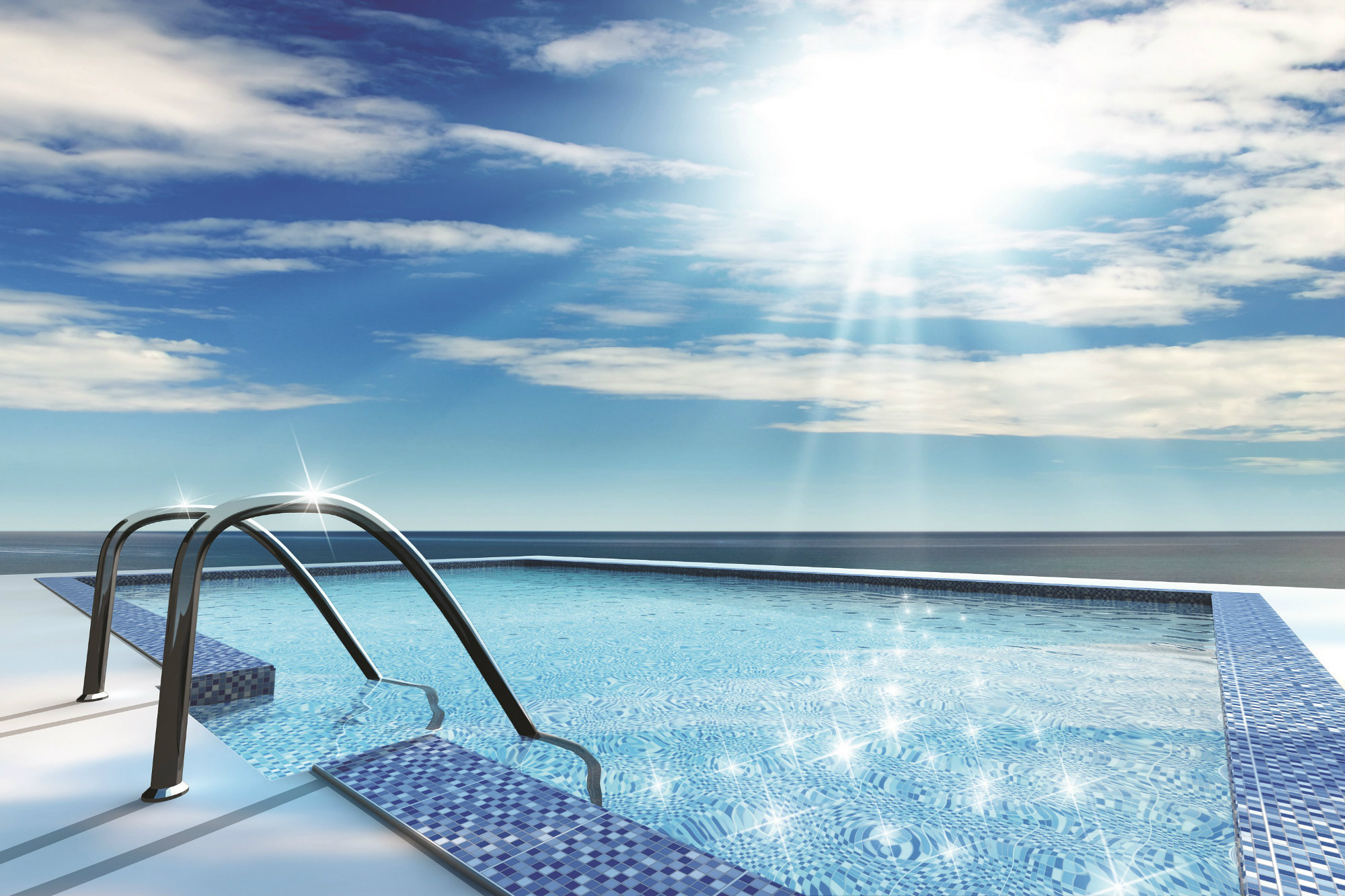Ultraviolet pool sanitization systems are mostly known for commercial-pool applications, but they are taking their place in the range of options for residential swimming pools.
Pool builder Josh Buzzell, for instance, outfit his own pool with the technology, and he sells it with most of the pools he builds. “I always want the cleanest water, because I’m a geek,” says the CEO of Regal Pools in Tomball Texas.
But UV is just beginning to enter the consciousness of residential clients at this time, which means they need a fair amount of education.
As when selling ozone systems, professionals should apply some of the basics mentioned in Part 1, such as having a conversation about water balance and how to maintain it with the addition of a pH/ORP monitoring system or other provision. “The most effective sanitation happens when water is balanced,” says builder/service professional Jerry Parker, owner of Parker’s Pool & Spa in Redwood City, Calif.
And, like ozone, UV offers the benefit of no added byproducts, which helps control total dissolved solids.
Find out the following advice experts offer for selling UV technology. A primer on selling Advanced Oxidation Process, which combines UV with ozone, will come in Part 3.
1. Emphasize the commercial and municipal connections.
While UV systems seem on their way to becoming more commonly known among homeowners, they first truly gained their foothold in the commercial world. UV plays an increasingly important role in the water-quality management of commercial pools, with their higher bather loads and more stringent codes to comply with. Designers of interactive spray features especially appreciate UV’s ability to eradicate certain pathogens that chlorine can’t.
When talking to his residential clients, Buzzell explains this fact to help bolster UV’s credibility and emphasize its value.
“If you look at the specifications on any commercial pool, they’re always going to have a UV system, because it works,” he says. “It kills all the things that are connected to your body — parasites and all those weird things. So if you have a pool party with 50 children in the pool, it’s going to kill all that stuff that’s coming off them.”
Even more impressive, some districts use this technology to help treat their drinking water – a fact that homeowners will learn if they work with Parker.
2. Advocate UV as a less-expensive alternative.
Some homeowners are becoming more concerned about removing as many pathogens as possible, whether because they entertain frequently or just generally like to be as clean as possible. Available for hundreds of dollars, rather than thousands, UV may serve as a viable alternative for those customers who have these concerns but are not able or willing to invest in a more expensive option such as Advanced Oxidation Process.
“We sell it to both [high-end and mid-range clients] because it’s not that much to put a UV system on your pool,” Buzzell says.
3. Target these systems to the entertainers.
If a client frequently invites people to swim, has a large family or will use their pool a great deal, UV may prove a worthwhile option for them.
4. Explain UV’s consistent presence.
UV systems work whenever the pool’s circulation system is running. This means that a pool will receive its dose of ultraviolet sanitization for at least a few hours a day.
This serves as a nice reassurance, especially for pools that will be sanitized with weekly chlorine dosing. “You’re sanitizing the water better than just the once-a-week chlorine routine, because it is coming on six to eight hours per day throughout the week,” Parker says.
5. Don’t overpromise.
Despite all these benefits, ultraviolet light systems do not function as a replacement for chlorine, but serve to augment it. Residential pools will still need a minimum of 1 part per million of chlorine.
“So you can’t tell them it’s a replacement sanitizer,” Parker says. “But you can tell them it’s a great assist, and it does kill other pathogens in the water that chlorine just doesn’t attack.”





